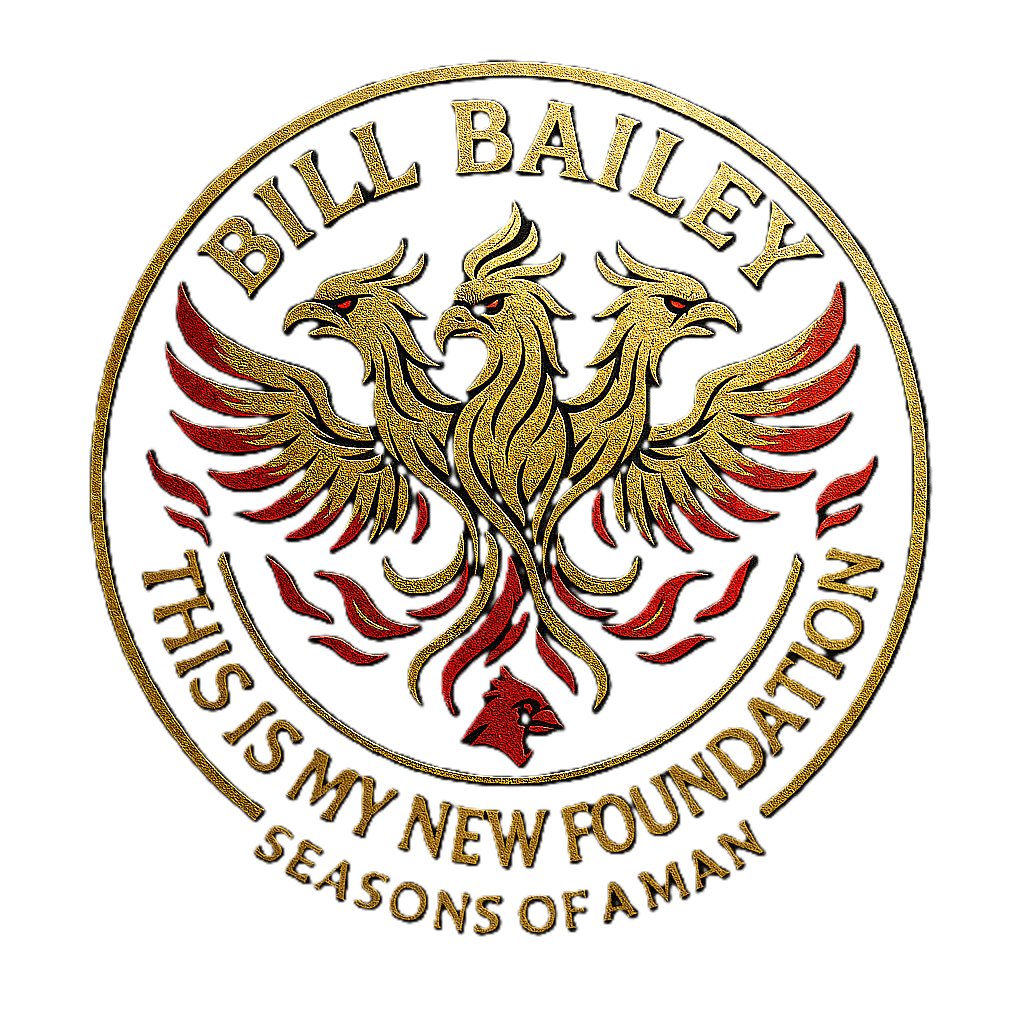Bill Bailey’s journey is a profound testament to the power of brotherhood lessons, family forgiveness stories, and resilience through family. His memoir, This Is My New Foundation, offers an intimate window into a life shaped by trauma, faith, and an unyielding commitment to rebuild even after devastating loss. Rooted in his personal experiences, Bailey’s story illuminates how forgiveness and healing are often the keys to finding one’s way back to peace and purpose.
Brotherhood Lessons from a Lifelong Bond
Central to Bill Bailey’s journey is the profound connection with his brother, Marion “Money” Browder. More than just siblings, they were mirrors and moral compasses for each other. Money represented the quiet, protective strength that fortified Bill through his struggles. As Bailey reflects, “Brotherhood is a bond, not a title,” emphasizing that loyalty and presence matter more than words or roles.
Money’s steady support wasn’t flashy or spoken but shown through actions—helping family, offering kindness without expectation, and standing as a pillar when life got hard. These brotherhood lessons extend beyond family ties—they speak to the power of having someone who genuinely sees you and walks with you through both storms and calm. Money became a living legacy for Bill, reminding him that strength is often found in silent, steadfast presence, and that sometimes “some angels wear hoodies, not halos.”
Family Forgiveness Stories Rooted in Honesty
Bailey’s narrative does not shy away from the complexities of family dynamics. His path includes moments of pain, abandonment, and betrayal, but his tale is ultimately one of forgiveness—both giving and receiving it. His reflections on the role of his mother show that family forgiveness is often intertwined with honor and respect, even when history is complicated.
One of the most moving aspects of Bailey’s story is his dedication to his mother in her final years, despite their emotional distance. Protecting her dignity and standing up to institutions trying to exploit her, Bill embodies the act of forgiveness as an ongoing, active choice. “A mother’s love is the blueprint for your worth,” he writes—an acknowledgment that even imperfect love shapes us deeply, and that family forgiveness stories are complex and layered.
This theme continues as Bailey confronts his own trauma and learns to forgive himself. He openly discusses the shame he carried and the healing that came when he embraced his truth and chose not to be defined by his past mistakes. Forgiveness, in his telling, is not just reconciliation with others but a vital step in self-compassion and growth.
Resilience Through Family as a Foundation
Bill Bailey’s life exemplifies how resilience through family can be both a survival mechanism and a source of transformation. From his chaotic childhood in Detroit to the battles of his military career, and the personal crises during the COVID-19 pandemic, family has been a consistent thread of strength and support.
Whether it was his brother’s protective silence or his wife Hazel’s unwavering love, Bailey credits these relationships with helping him withstand intense hardship. He reflects on how love and faith provided an anchor when everything else fell away: “Love was what kept me together, especially when I felt like I was on the verge of crumbling”.
This resilience is not portrayed as an innate trait but a cultivated power—built through years of shared experiences, losses, and mutual care. Bailey’s story shows that family is often where healing begins and where purpose is rekindled, even after profound pain.
Forgiveness and Healing: The Pillars of New Beginnings
Perhaps the deepest lesson from Bill Bailey’s journey is the transformative power of forgiveness and healing. Far from a simplistic forgiveness, Bailey’s version involves confronting long-buried trauma, accepting difficult truths, and gradually rebuilding an authentic self.
He writes candidly about his struggles with PTSD, childhood abuse, and the broken patterns that marked much of his life. Yet, rather than letting these define him, he embarked on a path of therapy, faith, and self-reflection. The act of forgiveness—for others and for himself—became essential in dismantling the walls pain had built.
In his words, “Pain was my first teacher… but now I see what it came to do. It didn’t come to break me. It came to build me.” This mindset underpins his belief that healing is a process of resilience, surrender, and faith—not forgetting suffering but integrating it into a stronger foundation.
Bailey’s new foundation rests on grace, faith, and the daily choice to keep moving forward, reminding all readers that “your past does not define you” and that true peace comes from embracing truth with courage.
Conclusion: An Invitation to Embrace Journey and Growth
Bill Bailey’s journey stands as a beacon for anyone struggling with loss, trauma, or fractured relationships. His story teaches that brotherhood lessons, family forgiveness stories, and resilience through family are not just abstract ideals but living forces that can heal and empower.
Through his candid reflections and unwavering faith, Bailey inspires readers to consider forgiveness not only as a gift to others but also as a path to personal liberation and healing. His life is a powerful reminder that no matter how hard the past or uncertain the future, there is always hope for renewal.
In embracing the hard truths of his life, Bill Bailey offers us a message of grace and rebuilding: “You are not alone. Your recovery might just start in the silence. Allow it.” His journey invites all to build a new foundation—not out of fear, but out of faith and love.
